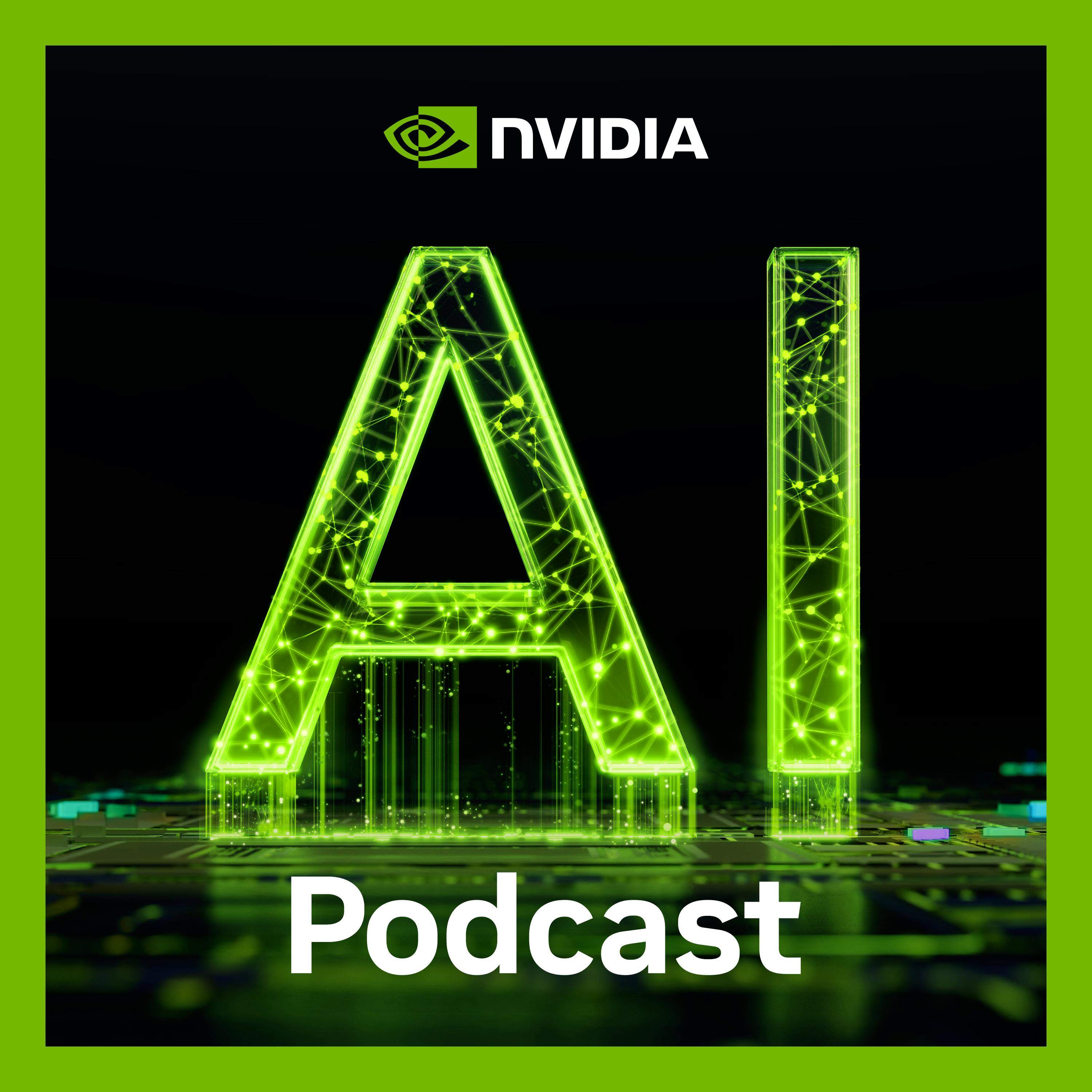

NVIDIA AI Podcast
NVIDIA
Explore how the latest technologies are shaping our world, from groundbreaking discoveries to transformative sustainability efforts. The NVIDIA AI Podcast shines a light on the stories and solutions behind the most innovative changes, helping to inspire and educate listeners. More information: https://ai-podcast.nvidia.com/
Episodes
Mentioned books

Feb 11, 2019 • 23min
How Nuance Brings AI to Healthcare - Ep. 78
You probably recognize the name Nuance from their work with speech recognition and virtual assistant technology. They’re one of the pioneers of voice recognition technology. Of course Nuance Communications has gotten into AI, but what you might not know is they’ve also gotten into using AI to chart the course of the healthcare industry and how physicians can use artificial intelligence to make people healthier and make their work better, Karen Holzberger is the vice president and general manager of Nuance’s Healthcare diagnostic solutions business.

Jan 23, 2019 • 30min
Sort Circuit: How GPUs Helped One Man Conquer His Lego Pile - Ep. 77
At some point in life, every man faces the same great challenge: sorting out his children's Lego pile. Thanks to GPU-driven deep learning, Francisco "Paco" Garcia is one of the few men who can say they've conquered it. Here's how.

Jan 9, 2019 • 29min
A Man, a GAN, and a 1080 Ti: How Jason Antic Created 'De-Oldify' - Ep. 76
You don't need to be an an academic or to work for a big company to get into deep learning. You can just be a guy with a NVIDIA GeForce 1080 Ti and a Generative Adversarial network. Jason Antic, who describes himself as "a software guy," began digging deep into GANS. Next thing you know: he’s created an increasingly popular tool that colors old black-and-white shots to make them look good. Interested in digging into AI for yourself? Listen and get inspired.

Dec 19, 2018 • 29min
How SoundHound Uses AI to Bring Voice and Music Recognition to Any Platform - Ep. 75
SoundHound made its name as music identification service. Since then, SoundHound has become much more. It's leveraged its 10 plus years in data analytics to create a voice recognition tool companies can bake into any product. Here to tell us how SoundHound has grown into a major player in voice driven Ai is SoundHoud VP of Product Marketing Mike Zagorsek.

Dec 6, 2018 • 27min
Good News About Fake News: AI Can Now Help Detect False Information - Ep. 74
With “Fake News” embedding itself into, well, our news, it’s become more important than ever to distinguish between content that is fake or authentic. That’s why Vagelis Papalexakis, a professor of computer science at the University of California, Riverside, developed an algorithm that detects fake news with 75 percent accuracy.

Nov 21, 2018 • 36min
A Conversation with the Entrepreneur Behind the World's Most Realistic Artificial Voices - Ep. 73
Voice recognition is one thing, creating natural sounding artificial voices is quite another. Lyrebird - a member of NVIDIA’s Inception startup program - uses deep learning to take this a step further, with a system that's able to listen to a human voices and generate speech that mimics the sound of the original, human, speaker. We spoke with Lyrebird co-founder Jose Solero about the benefits of this technology, and why he feels the need to educate the public about what's possible.

Nov 7, 2018 • 34min
Investor, AI Pioneer Kai-Fu Lee on the Future of AI in the US, China - Ep. 72
Dr. Kai-Fu Lee has been at the center of artificial intelligence for decades.
dr. Lee developed the world's first speaker independent continuous speech recognition system, selected as the most important innovation of the year by BusinessWeek, and that was back in 1988.
In the three decades since, Dr. Lee has led teams at Apple, Silicon Graphics, Microsoft and Google.
In 2009 Dr. Lee left Google to start Sinovation Ventures, which now manages a $2 billion fund focusing on technology startups in China and the United States.
His latest book, "AI Superpowers: China, Silicon Valley, and the New World Order," ranks number six on the New York Times Business Books best sellers list.

Oct 24, 2018 • 32min
How Intuit Uses Deep Learning to Help You with Your Taxes - Ep. 71
Intuit Senior Vice President and Chief Data Officer Ashok Srivastava on how the personal finance giant is using AI to help make us all smarter about our finances.

Oct 10, 2018 • 25min
What's in Your Wallet? For Capital One, the Answer Is AI - Ep. 70
When you hear of AI and machine learning, it’s easy to think of technology companies leading the charge. Capital One is determined to change that. In a conversation with AI Podcast host Noah Kravitz, Nitzan Mekel, managing vice president of machine learning at Capital One, explained how the banking giant is integrating AI and machine learning into customer-facing applications such as fraud-monitoring and detection, call center operations and customer experience.

Sep 17, 2018 • 23min
Cycle of DOOM Now Complete: Researchers Use AI to Generate New Levels for Seminal Videogame - Ep. 69
DOOM, of course, is foundational to 3D gaming. 3D gaming, of course, is foundational to GPUs. GPUs, of course, are foundational to deep learning, which is, now, thanks to a team of Italian researchers, two of whom we're bringing to you with this podcast, being used to make new levels for... DOOM.


